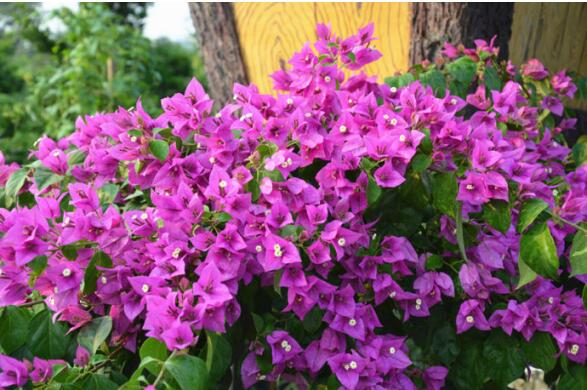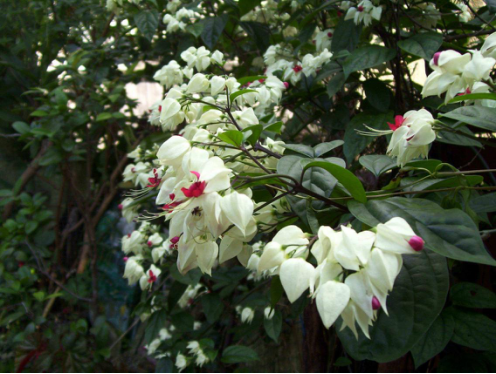Control methods of diseases and insect pests of Platycodon grandiflorum
Platycodon grandiflorum is a perennial herb. Its root system can be used as medicine. It has the effects of dispelling cold, expelling phlegm, promoting pharynx and expelling pus. It mainly treats exogenous cough, sore throat and so on. At present, there are plants in all major areas of our country, but diseases and insect pests will occur during production, which will directly affect the yield and quality of Platycodon grandiflorum 1, thus affecting the income of drug farmers, so how to control the diseases and insect pests of Platycodon grandiflorum? Let's take a look.

1. Anthrax
Anthracnose mainly harmed the base of the stem of Platycodon grandiflorum. At the beginning of the disease, brown spots appeared at the base of the stem, which gradually expanded around the stem. In the later stage of the disease, the spot began to contract, causing the plant to break and lodge from the lesion, which usually occurred in the period of high temperature and humidity.
Control methods: after autumn harvest, clean the field thoroughly, burn the diseased and residual plants and bury them deeply, so as to reduce the pathogenic bacteria. To strengthen field management and increase plant disease resistance, Bordeaux solution and methyl topiramate solution were sprayed in the early stage of the disease, and the effect was good.
2. Spot blight
Spot blight mainly harms the leaves, when the disease occurs, there are round or nearly round white spots on both sides of the leaves, and there are black spots on the spots, which are the conidia of the pathogen. When the disease is serious, multiple disease spots fuse, resulting in leaf death.
Control methods: also in the autumn harvest, thoroughly clear the field, reduce pathogens, through the application of phosphorus and potassium fertilizer to improve the disease resistance of the plant. At the initial stage of the disease, methyl topiramate and carbendazim solution can be sprayed every 7-10 days. Good results can be achieved for 2-3 times in a row.
3. Fusarium wilt
Fusarium wilt can harm the whole plant, the base of the stem is dry rot, and brown, its pathogen will continue to spread upward along the stem, and finally lead to the whole plant infected, in the high humidity environment, the base of the stem will appear pink mildew layer, and eventually lead to plant wilt and death.
Prevention and control methods: rotation with Gramineae crops can reduce the incidence of the disease. Diseased plants should be pulled out and taken out of the field in time, and disinfection should be done on the disease points. At the same time, we should pay attention to the humidity in the field, drain the water in time after rain, and use methyl thiophanate and carbendazim in the field to control the disease.
4. Insect pests
The main pests of Platycodon grandiflorum are aphids and ground tigers, they will suck plant juice or bite tender stems, tender roots, serious will cause plant death, great harm.
Prevention and control methods: they can be controlled by the combination of agricultural, physical and chemical methods. In order to reduce the source of overwintering insects, they can be ploughed to eliminate eggs in winter, and electric lights and black lights can also be installed to trap and kill pests. Electric lights and black lights can also be used to trap and kill solutions, and insecticide control can be improved.
The above is an introduction to the prevention and control of diseases and insect pests of Platycodon grandiflorum. I hope it can help you. If you want to know more about it, please follow us.
- Prev

Countermeasures for yellowing of Coral vine leaves
Under the condition of moderate watering and normal growth, the soil should be watered regularly to keep the soil moist. During the dormant period of coral vines, watering times and measurements should be reduced, and water can be sprayed on the leaves to maintain it. Put the coral vine in a cool and ventilated place, or to the south of the sun and with proper shade.
- Next

Flowering Maintenance of Dragon Pearl
Light During its flower bud differentiation, it is rarely affected by light, but if it can have strong light, it can be beneficial to its flower bud differentiation and development. And be sure to note that if the flowers are placed in a dark space for too long, and the temperature has been maintained above 21 degrees
Related
- Fuxing push coffee new agricultural production and marketing class: lack of small-scale processing plants
- Jujube rice field leisure farm deep ploughing Yilan for five years to create a space for organic food and play
- Nongyu Farm-A trial of organic papaya for brave women with advanced technology
- Four points for attention in the prevention and control of diseases and insect pests of edible fungi
- How to add nutrient solution to Edible Fungi
- Is there any good way to control edible fungus mites?
- Open Inoculation Technology of Edible Fungi
- Is there any clever way to use fertilizer for edible fungus in winter?
- What agents are used to kill the pathogens of edible fungi in the mushroom shed?
- Rapid drying of Edible Fungi

